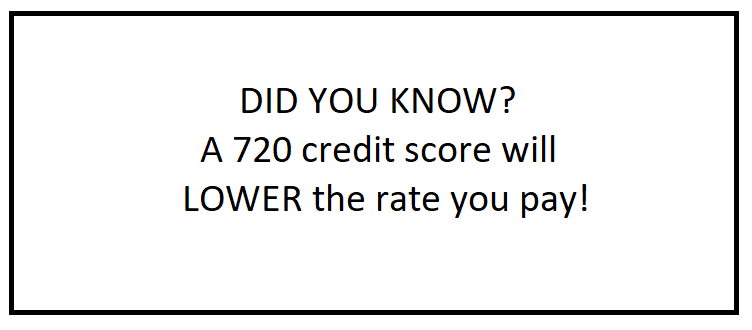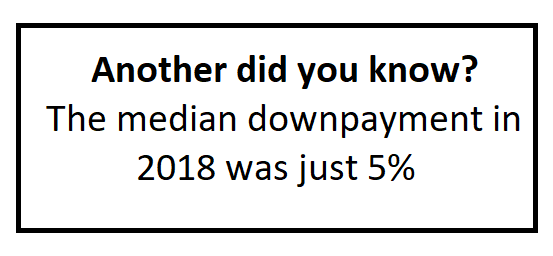The very best way to buy your first home is to have a well-planned strategy. The excitement of looking at homes online and dreaming about what you’ll do when you own your own home can be dashed by unforeseen issues on the financial side of the deal. And these 5 steps are critical for existing homeowners to take when they’re thinking about moving up too!
You may have started with an online mortgage calculator to determine a price range, and that’s a good first step to looking at homes online. But when you’re ready to get serious about planning on buying a home – even a year in advance, you need to get your finances in order. Here’s how:
- Know & Maximize your Credit Score
Pulling your own credit score has never been easier. You can get a free one every year, and many credit card companies will give you a credit score. Knowing your credit score is THE most important step to obtaining a mortgage to buy your home:
- Even if you have all the alerts set up and are sure that you have good credit, there can be errors on your report! Errors can be fixed, but they do take time.
- While the average credit score for mortgage-seekers in 2018 was 726, your credit score can be as low as 650 to be approved for most mortgages.

- When your score is 720 or above, then you can actually get a LOWER RATE of interest. Imagine knowing you were going to buy in 3 months, and your credit score was 710. Wait until you’re applying for the mortgage, or take a simple step or 2 to boost it up and SAVE on your rate?
2. Seek mortgage pre-qualification from several lenders
The best way to find out your credit score is to speak with a lender over the phone and get pre-qualified. They’ll tell you your score in the mortgage system, and it DOESN’T AFFECT YOUR SCORE. You can certainly get pre-qualified through the bank you have your checking account with. But will they have the best PROGRAM OPTIONS for you? Probably NOT!
- Banks have few mortgage program options – typically JUST their “in-house” products and standard rates.
- Just like stores, lenders do sometimes have “promotions” that last several months or even years. Each lender has a different promotion, so finding the one that works best for you requires you to speak to several (we recommend 3, and can provide you with the names of great pros)
- Once you’ve selected the lender/program, then you’re better off getting PRE-APPROVED. This is a BIG extra step, but it will make a big difference when you’re actually ready to write an offer – your offer will LOOK BETTER to the Seller since they know you’ve gone the extra mile.
3. Know your Closing Costs & Downpayment
After you’ve made the offer, and you sit down at closing, you’re going to need quite a bit of cash. Just how much? Well, your lender will pre-approve you for your down payment amount. You also need:
- Closing costs, about 2% of the loan amount. Different lenders charge different amounts. And when you’re deciding between programs, the cash you need for the different programs is REALLY important! After you’ve gotten each lender’s estimate, it’s best to discuss each one with your Realtor. Every single item EXCEPT the “Lender Charges” – we can shop for them!
- Don’t forget about the inspections you’ll do on the home – budget $1,000 for those!
- When you get pre-qualified beforehand, you know how much cash you need. Don’t have it yet? Then you’ve got time to SAVE! Getting a gift from a parent? Know how much, and get it ready ahead of time!

- Most first-time buyers think they HAVE TO put down 20%. But you can put down as little as 3.5%, and some loan programs provide 100% financing.
- Many Buyers think the Seller pays their closing costs. We make offers that include the Seller paying some amount of closing costs. When we do this, the Seller makes less money, so any offer should ADD closing costs to the purchase price if you want the Seller to think about it.
4. Hold off on Significant Purchases…
Until AFTER you close! Finding the home and going under contract brings euphoria, and for some, thoughts of new furniture, TV’s, etc. But as long as you’re thinking about buying, and until after you close on your dream home – don’t spend large sums (the lender will ask!) or take on ANY new debt! Even the “No payments for 12 months!” is new debt in the eyes of the lender, and it has killed many home purchases!
5. Get your Cash in Place
Of course, when you close, you’ll need the amount due – downpayment and final closing expenses – wired to the closing attorney. It is NOT a personal check, and because of fraud, few will accept a certified bank check. But you really should have all of your cash “in place” well before closing. Your lender will “source” all deposits into your main account.
If everything is put into a savings account, and then you’re going to transfer it to a checking account to wire out, no worries. But if you’re drawing from an investment account of mutual funds or even individual stocks, it takes a couple of business days to clear. And if part of your downpayment is a gift from someone else (like your parents), then the Lender needs to source that money going into your account, and they will want a “gift letter” at least a week in advance so it sails through underwriting.



